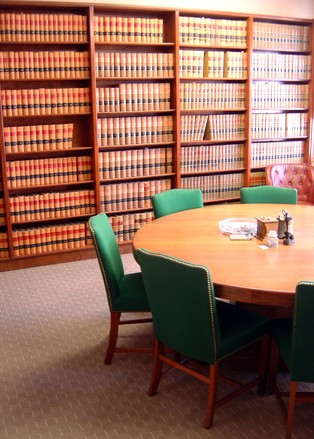

ANOTHER day goes by and another law firm, Seyfarth Shaw LLP in this case, writes about Alice -- or a high-level decision that led to mass invalidation of software patents in the United States.
"They might even have to change their career and do something practical, not parasitic."The patent lawyers are rightly concerned about the fate of post-Alice lawsuits. To them, the patent lawyers, this is a potential disaster. They might even have to change their career and do something practical, not parasitic. As the lawyers put it: "The Supreme Court’s Alice decision clearly indicated a dramatic shift in the way software patents are treated by the courts and reduced software patent litigation in the process. One defendant took this a step further and moved for attorneys’ fees against a patent owner – simply for continuing to assert a software patent post-Alice."
That would further contribute to reduction in litigation. To lawyers, business means lawsuits and armament for lawsuits.
Another law firm, and no ordinary law firm (but a very loud proponent of software patents), has become exceptionally sceptical of Mark Cuban's position on software patents [1, 2, 3, 4] -- a position in which he put money, with the aim of eliminating "bad" patents or software patents (or trolls, depending on what the people he has hires claim to be standing for on some given day at the EFF).
Mr. Cuban is nowadays being mocked for his views on software patents -- views which patent lawyers could barely ever tolerate. They view Mr. Cuban as a threat. According to an E-mail interview, Mr. Cuban "wrote software for 10 years," so he comes from a position of understanding of the underlying process and thus he can explain why patents are not suitable for this domain, namely software. To quote some of the parts about software patents:
QUINN: In the past you have said that software patents should not exist. I have no doubt that is your honest opinion, but I wonder why you single out software patents in particular? Whether a process is carried out in software versus being carried out in hardware is really a design choice. Why should processes carried out by hardware be treated differently than those directed by software?
CUBAN: Code is code. Where it runs doesn’t matter. So it’s not different. I wrote software for 10 years. Not much, if anything, is completely original in software. Like Jobs said, it’s all a remix.
[...]
QUINN: I assume if you could make one change to the patent system it would be to eliminate software patents. Aside from the elimination of software patents, if you could make one other change to the patent system or patent litigation system what would that change be and why?
CUBAN: Getting rid of software patents or at worse limiting them to 5 or 7 years is a huge step forward. After that, if you don’t utilize the patent in a product or service, somewhat similar to how a trademark works, you lose it. I would also disallow patents created without knowledge of the other. If multiple people INDEPENDENTLY come up with the same or comparable idea within a given time frame then to me, it can’t be original.
Patent trolls: Extortion at the expense of innovation
An unforeseen burden has plagued Connecticut businesses over the last decade. Between 2005 and 2015, a practice known as "patent trolling" has increased fivefold.
Patent trolls use vaguely written patents to threaten or file frivolous lawsuits against their victims, mostly small and medium-sized business owners. Then they take advantage of the extremely high cost of patent litigation to force settlements, even when the victim knows they've done nothing wrong.